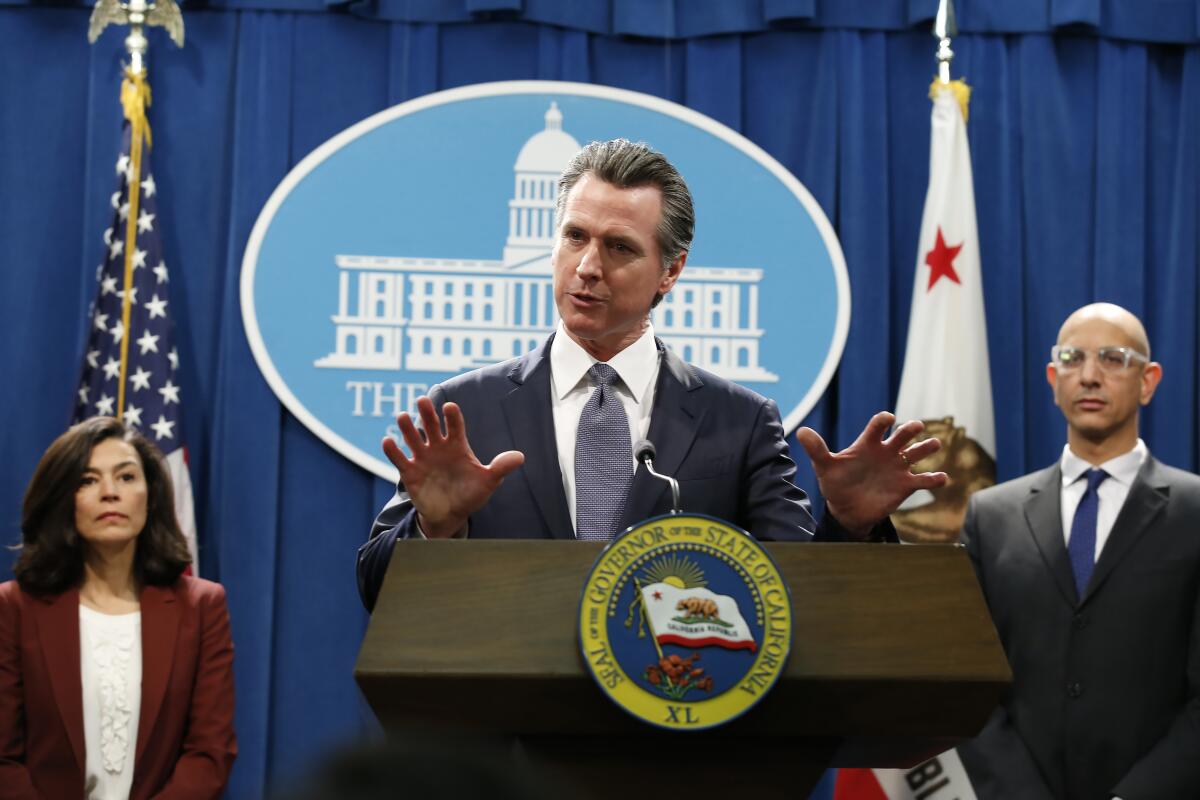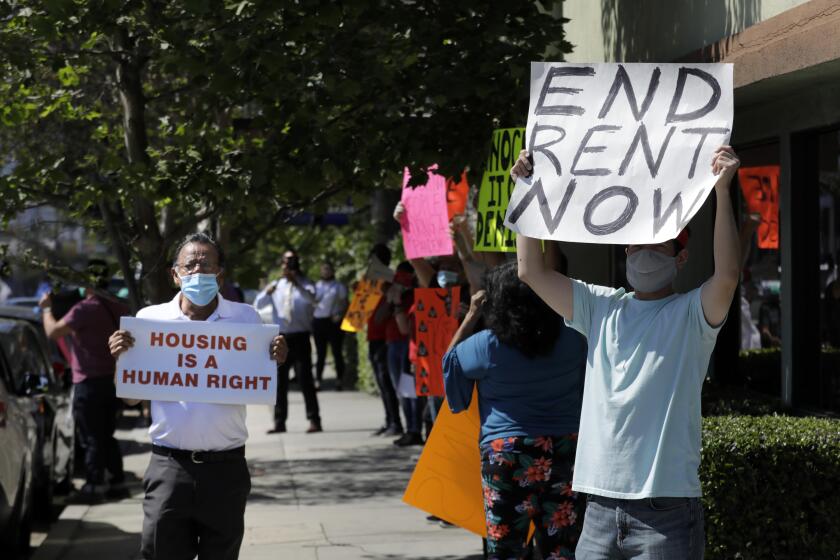Orange County wants justices to reopen schools statewide. Experts say it’s a long shot

- Share via
SAN FRANCISCO — When the state’s top court agreed to review two cases challenging Gov. Gavin Newsom’s limitations on in-classroom instruction, backers of the litigation said they were heartened.
Robert L. Tyler, one of the lawyers who brought the cases on behalf of schools statewide and the Orange County Board of Education, said the court could have dismissed the cases summarily rather than asking for more written arguments.
The fact that the court asked for more arguments “is one reason we are very excited,” he said.
But the California Supreme Court has taken up similar cases before, only to dismiss them after reading written arguments. The court also tends to to be deferential toward the legislative and executive branches of government, and Chief Justice Tani Cantil-Sakauye was given extraordinary legal powers to manage courts during the pandemic.
“Overwhelmingly, courts around the country have rejected challenges and upheld restrictions,” said Erwin Chemerinsky, dean of the UC Berkeley law school. “Based on these rulings, I think the court is likely to uphold Gov. Newsom’s actions. We are in the midst of a pandemic, and COVID-19 is easily spread.”
The court is expected to issue a decision next week.
John Caragozian, a longtime board member of the California Supreme Court Historical Society who previously taught a law school class on California legal history, said the court may take up such cases directly when time is of the essence and important rights are asserted.
Most cases start at the trial court and move on to the intermediate courts of appeal before the California Supreme Court gets involved.
“Maybe the court feels it is going to end up in the Supreme Court anyway, so why not deal with it now,” he said.
He added that it would take “a pretty strong legal and factual case for the court to substitute its judgment for the governor’s.”
The plan, which faces the high hurdle of having to get a two-thirds vote in each house of the Legislature by Monday night, was seen as a compromise with landlord groups who oppose a pending bill that would have kept tenants from being evicted if they did not pay any rent as late as April.
In late April, the court ordered arguments on a suit to block $75 million in state disaster relief assistance to undocumented immigrants during the pandemic. The court reviewed written arguments from both sides, then summarily denied the petition without comment on May 6.
Even if the challengers in the school cases lose, Tyler said, the lawsuits may have put political pressure on Newsom.
Tyler noted that Orange County came off the state’s coronavirus watchlist the day after the cases were filed. A few days later, he added, the California Dept. of Public Health issued guidelines to allow small cohorts of students with disabilities and others to be taught on school grounds.
Tyler said he believed those actions were “in reaction” to the litigation.
On Friday, Newsom announced new rules to create a path for the partial reopening of schools in some counties and also eliminated the watchlist, substituting it for color-coded tiers.
One of the cases before the state high court involves public schools; the other, private schools. Tyler’s law firm filed both. The suits ask the justices to order Newsom and other state officials to stop enforcing health directives that require schools to implement distance learning.
“Many students are struggling in the online environment as they lack the home support they need to thrive in a distance learning model,” the petition on public schools said.
Tyler has sued Newsom before and won at the California Supreme Court. He was among those who asked the court to stop San Francisco from issuing marriage licenses to same-sex couples in 2004. Newsom at the time was the mayor of San Francisco. The state high court stopped the marriages and then ruled that 4,000 licenses handed out by San Francisco were invalid.
Later, the California Supreme Court struck down a state law barring same-sex marriage. Religious groups responded by winning passage of a ballot proposition to restore the marriage ban. A challenge in federal court eventually led to the legalization of same-sex marriage across the country.
In responding to the challengers Friday, lawyers for Newsom said he and the California Department of Public Health “have appropriately exercised state police powers in responding to the unprecedented, deadly COVID-19 pandemic.”
“Everyone would prefer that the country was not in the midst of an unprecedented pandemic,” the response said. “But we are, and given current epidemiological trends, schools cannot operate as normal in many communities without imperiling public health.”
More to Read
Sign up for Essential California
The most important California stories and recommendations in your inbox every morning.
You may occasionally receive promotional content from the Los Angeles Times.















